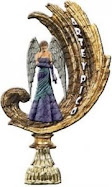Garden Blogger’s Muse Day, updated again
This one is for GardenJoy4Me and everyone else out there battling woodchucks and racoons and other critters. Not that I am recommending this method, but it’s long been a favorite poem of mine, and came to mind as I read of several decimated gardens and the ongoing struggle to remove the decimaters humanely.
Woodchucks
Gassing the woodchucks didn’t turn out right.
The knockout bomb from the Feed and Grain Exchange
was featured as merciful, quick at the bone
and the case we had against them was airtight,
both exits shoehorned shut with puddingstone,
but they had a sub-sub-basement out of range.
Next morning they turned up again, no worse
for the cyanide than we for our cigarettes
and state-store Scotch, all of us up to scratch.
They brought down the marigolds as a matter of course
and then took over the vegetable patch
nipping the broccoli shoots, beheading the carrots.
The food from our mouths, I said, righteously thrilling
to the feel of the .22, the bullets’ neat noses.
I, a lapsed pacifist fallen from grace
puffed with Darwinian pieties for killing,
now drew a bead on the little woodchuck’s face.
He died down in the everbearing roses.
Ten minutes later I dropped the mother. She
flipflopped in the air and fell, her needle teeth
still hooked in a leaf of early Swiss chard.
Another baby next. O one-two-three
the murderer inside me rose up hard,
the hawkeye killer came on stage forthwith.
There’s one chuck left. Old wily fellow, he keeps
me cocked and ready day after day after day.
All night I hunt his humped-up form. I dream
I sight along the barrel in my sleep.
If only they’d all consented to die unseen
gassed underground the quiet Nazi way.
–Maxine Kumin
While hunting for this poem on-line I discovered that there’s a fair amount of really bad analysis of it out there. Don’t read any of it.
Rather to my surprise, this poem upset and angered a fair number of students, I discovered. (This was in a poetry course with a full range of college students in it.) That response always surprised me, but then it always seemed to me that the poem contained a critique of the action it describes, so that the poem’s subject isn’t shooting the woodchucks, but the moral quandry this action inspired. How privileged, this literary remove from life.
By the way, after perusing the serious submissions out there, zip on over to the Bumblebee blog for a swift lightener-upper.
UPDATE:
Here’s a link to Kumin reading the poem. The most interesting part, for me, is her brief introduction, in which she says this is "a terribly autobiographical poem."

 Subscribe to RSS feed
Subscribe to RSS feed


